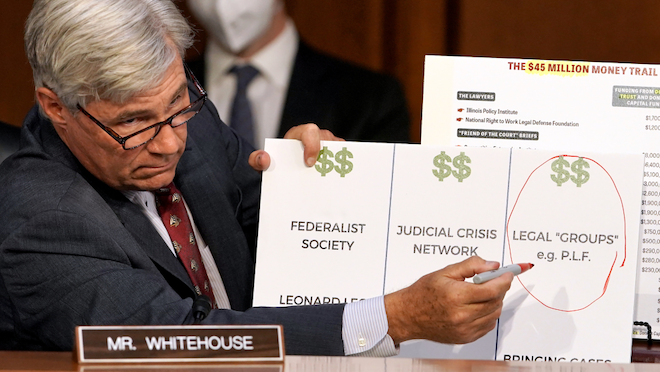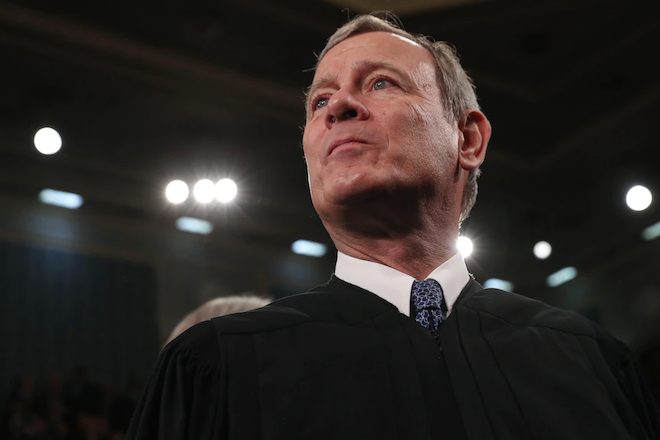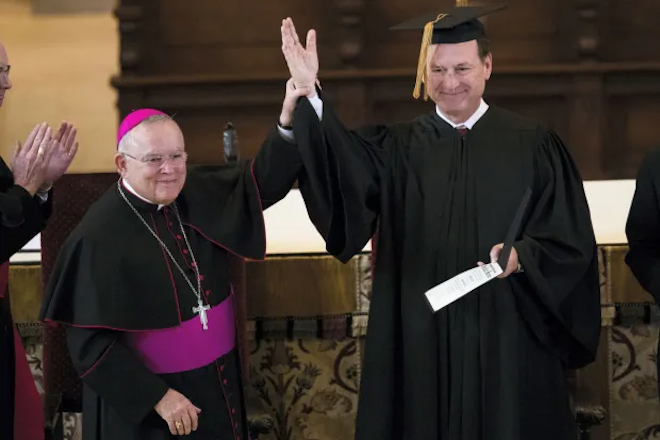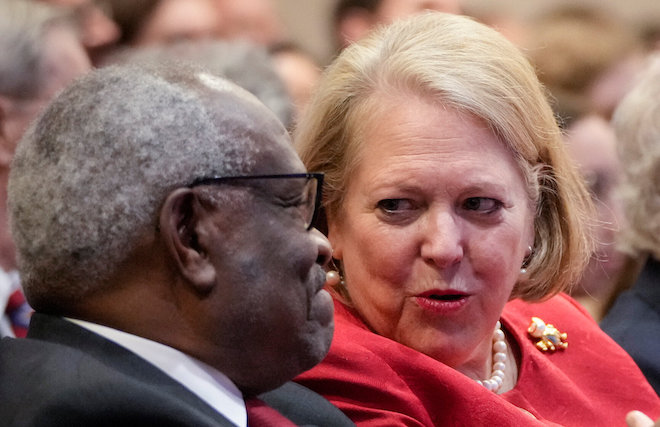Corporate influence targets top US judges ... Dark Money funding access to SCOTUS ... Ethics violations undisturbed ... Federalist Society turnstile ... Feedback loop ... Hunting expeditions ... Leaks of conservative-religious court decisions ... Clarence & Ginni - nothing to see here
 Sheldon Whitehouse on the Dark Money trail
Sheldon Whitehouse on the Dark Money trail
THE scandals of the leaked draft abortion decision overturning Roe v Wade and the conduct of Associate Justice Clarence Thomas and his insurrectionist wife are the least of the US Supreme Court's problems - shocking as they are.
More insidious is the capture of the court by wealthy individuals and organisations, who gain access and influence with undisclosed Dark Money donations, while the ethical mechanism of the court is not up to handling this partisan influence peddling.
One pathway to chumming-up with favourites judges of choice is through donations to the Supreme Court Historical Society and sponsoring its events.
More secretive are the dinners and paid-for vacations for judges, snuggly prayer sessions, hunting trips and gifts.
In return for hospitality there's access to previews of "coming attractions".
According to Senator Sheldon Whitehouse, the chair of the Senate Judiciary Subcommittee on Federal Courts Oversight, Agency and Federal Rights, the benign sounding Historical Society is really a laundromat for buying access to the judges.
When complaints are made to chief justice John Roberts about the wining and dining of judges, not as private quests but as judicial business contacts, he sends back a note along the lines of: "Thank you for your interest - we have a code of ethics."
 Roberts: legacy on the line
Roberts: legacy on the line
Except the court is not bound by an ethical code. Justice Brett Kavanagh was the subject of an ongoing ethics investigation when he served on the DC Court of Appeals, but it folded when he moved to the Supreme Court.
His Supreme Court confirmation hearings sparked 83 ethics complaints. Roberts appointed a special panel of federal judges to peek inside the allegations.
The panel described the complaints as "serious" but dismissed them, saying that judges lower down the food chain should not investigate members of the Supreme Court.
When it comes to dealing with the way money buys judicial access Senator Whitehouse, a former prosecutor and state attorney general, says there is no enforcement mechanism, there's no fact-finding process, and no independent determinations.
If anything, individuals members of the court consider ethical complaints as judges in their own cause. The Supreme Court actually defends its lack of process to handle ethical violations.
The chief justice requested the marshal of the court investigate the leak of the draft decision in the Dobbs v Jackson Women's Health Organisation abortion case - where the lead judgment was written by Justice Samuel Alito.
Since then it has emerged that an anti-abortion campaigner, Rev. Rob Schenck, became aware of the outcome of the pending decision in the landmark 2014 case Burwell v Hobby Lobby Stores Inc.
He had been tipped off by friends who had a meal with Alito just before the court delivered its findings. Alito also wrote the majority opinion in that case.
Schenck was told in advance by these contacts that the Supreme Court decision would mean that family-owned companies would no longer have to pay for insurance covering contraception. To do so, apparently, would be a violation of a corporation's "religious freedom".
The suggestion in Washington is that Alito had leaked both decisions - for whatever reason. Roberts has not commissioned an investigation into the Hobby Lobby leak.
 Alito the Leaker
Alito the Leaker
Here's Whitehouse's letter to Roberts about judicial ethics generally and the Hobby Lobby leak in particular.
Esquire magazine reports that the US chief justice has his back to the wall:
"It's obvious that Roberts can't rely on Alito or Thomas, who'd sell him cheap to Malay pirates; they wouldn't be protecting the court, they'd be protecting themselves. Kavanaugh is far from a rock in that regard, too. Gorsuch might be a wild card on whom Roberts could lean. Barrett would jump at shadows."
≈ ≈ ≈
Whitehouse and co-author Jennifer Mueller have just released a book that peels back the tissue thin layer of judicial legitimacy: The Scheme: How the Right Wing Used Dark Money to Capture the Supreme Court.
They explore the operations of the Federalist Society "as an appointments turnstile", with millions of dollars funnelled by commercial interests to back judicial nominees. These interests frequently turn up with amicus briefs before the very judges they have lobbied for selection.
Senator Whitehouse asks:
"What the hell is a sitting judge doing going to a highly partisan judicial advocacy organisation, stepping deliberately into political debate"?
In an interview with Dahlia Lithwick of Slate, Whitehouse points to the dozens of hunting trips Justice Antonin Scalia took with wealthy individuals - where the connections and the funding of those excursions was never disclosed by the court or the judge.
There's also the lingering problem of Justice Clarence Thomas and his election-denying wife, Ginni. She lobbied in the darkest corners of the Republican Party for the election results to be overthrown and Trump returned to the White House.
Justice Thomas claimed he knew nothing of his wife's nefarious political activities in the wake of the 2021 election result. It's a claim made at face value that certainly should have had Roberts tapping investigators for more information.
Instead, the response is, "nothing to see here, folks, move along".
 Clarence and Virginia Thomas: Ginni campaigned for the attempted coup
Clarence and Virginia Thomas: Ginni campaigned for the attempted coup
Senator Whitehouse describes SCOTUS as a "captured court" - with its capture akin to a covert intelligence operation.
He's currently got legislation before Congress to eliminate shadowy backroom arrangements that taint the independence of the court, with a requirement for judicial recusals when conflicts arise.
The Supreme Court Ethics, Recusal and Transparency Act would also establish a public register of gifts and for the court to produce a code of conduct.
The senator would also like to see term limits and the court expanded beyond nine justices.
Have there been any signs of lavish schmoozing between senior federal judges in Australia, even High Court judges, and captains of industry?
Attorney General Mark Dreyfus has foreshowed support for the ALRC's recommendation in its judicial bias report of a Commonwealth Judicial Commission - a complaints body for the federal judiciary, with the exception that the High Court is considered to be beyond reproach.